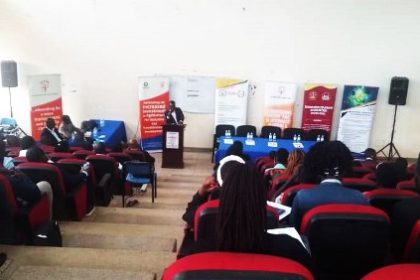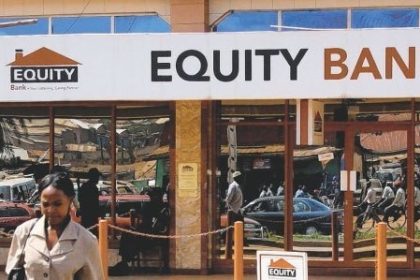Microfinance centre tagged for recapitalisation in FY 2018/19
December 18—Uganda’s Microfinance Support Centre (MSC) has been promised more funding, but no exact details are forthcoming about the amount or the timelines, but the government has plans to recapitalize MSC during financial year 2018/19.
“As Minister of Microfinance, I will ensure that funds are given to the Centre, because more Ugandans have embraced applying for loans from the Centre, because they cannot afford the expensive loans from the commercial banks. When we empower the Centre with enough resources, this will enable more Ugandan’s to access cheap loans,” Haruna Kasolo, the state minister in the finance ministry said when officiating at the re-branding of the financial institution in Kampala.
The most recent cash infusion for MSC came from the Islamic Development Bank which has provided UGX35 billion (about $10 million), but lending is based on Islamic banking principles and both MSC personnel and potential borrowers have had to go through crash programme to internalise this form of banking before money is disbursed.
The MSC does not directly lend to individuals but extends credit to microfinance institutions which in turn on lend to their individual members. These include Savings and Credit Cooperative Societies (SACCOs) Cooperatives Unions, Area Cooperative Enterprises and Microfinance Companies. MSC also selected funds Small and Medium Enterprises (SMEs). Originally, the government created MSC to channel funds to microfinance institutions to lend to farmers.
The Centre also has the job of providing business development services to its clients. This is to enable MSC clients to build their capacity to manage their businesses more profitably, but inadequate funding has limited MSC efforts..
John Mwebembazi, the MSC Head of Finance and Administration, said the Centre had improved on its performing by registering more clients during the pastyear. “The Centre has opened more branches across the country thus enabling us to support more clients who prefer our loans as opposed to commercial banks. Currently, we have about 5000 clients both village saving groups and institutions. We hope that if more funds are allocated to us then we shall support more Ugandans with cheap loans,” he said. Currently, MSC’s highest lending rate is 13% for a commercial loan.
Giving the keynote address during the event, Professor Augustine Nuwagaba, who runs a consultancy, once again called for setting up an agriculture bank to enable more farmers have access to cheaper credit. “The contribution of the sector in the country’s GDP has gone down, because Uganda is exporting less. Most of our exports from the agriculture are raw materials and they are very few Ugandan participating in the a-processing, because they cannot find cheap financial capital to inject in the business,” he said.

 Shell Club rewards first winners with brand new motorbikes in Mbale
Shell Club rewards first winners with brand new motorbikes in Mbale
 CSBAG roots for increased funding for renewable energy
CSBAG roots for increased funding for renewable energy
 Equity walks tried and tested path to deliver solid half-year
Equity walks tried and tested path to deliver solid half-year
 Nile Breweries primes retailers for brave new world
Nile Breweries primes retailers for brave new world
 Uganda calls for collaboration with airlines in fight against illicit trade in wildlife
Uganda calls for collaboration with airlines in fight against illicit trade in wildlife
 Airline industry top guns dust-off passports for Uganda hosted 55th AFRAA annual meet
Airline industry top guns dust-off passports for Uganda hosted 55th AFRAA annual meet
